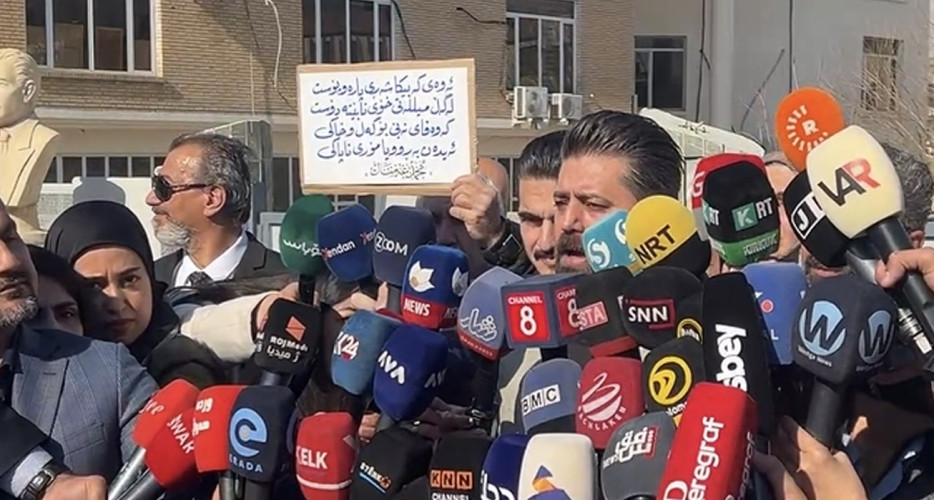
Peregraf
The Protection Committee of Protesting Teachers in Sulaymaniyah has announced the resumption of their boycott of the education process due to ongoing delays in salary payments. During a press conference, the committee declared:"We will start boycotting schools in all schools from tomorrow until the distribution of December 2024 and January 2025 salaries before the end of this month."
The committee also called for the implementation of Iraqi Tawteen Program, emphasizing that the continuation of the second semester hinges on resolving salary distribution issues. The term "Tawteen" refers to Iraq's salary domicilization program, which aims to facilitate the opening of bank accounts for public sector employees and pensioners. This initiative is intended to ensure that salaries and pensions are directly deposited into bank accounts, promoting financial transparency and efficiency. Tawteen centralizes salary payments under Baghdad’s supervision
The salary crisis has highlighted ongoing tensions between the Iraqi Ministry of Finance and the Kurdistan Regional Government (KRG), as both accuse each other of failing to adhere to the provisions of the Iraqi budget law.
KRG employees, including teachers, have yet to receive their December salaries, sparking growing frustration and uncertainty about future payments.
In a related development, approximately 20 Shiite lawmakers have urged Iraqi Prime Minister Mohammed Shia al-Sudani to halt financial transfers to the KRG until the KRG fulfills its obligations under the Iraqi budget law.
The lawmakers issued a statement accusing the KRG of failing to deliver oil and non-oil revenues to Baghdad. They claim the KRG owes 399 billion Iraqi dinars in non-oil revenues and more than 4 trillion dinars in other obligations. The group also threatened to summon Iraqi Finance Minister Taif Sami for questioning over funds sent to the KRG.
The escalating crisis underscores the deep-seated financial and political disagreements between Baghdad and Erbil, further complicating efforts to resolve salary payment delays in the Kurdistan Region.
On December 28, 2024, Muthanna Amin, a Kurdish member of the Iraqi Parliament, sharply criticized the KRG’s handling of the salary crisis, stating, "The Kurdistan Regional Government (KRG) has the money and must pay the salaries. Where are the revenues of hundreds of thousands of oil tankers, border revenues, electricity, and traffic?" He also called on Baghdad to act responsibly, emphasizing that "the first responsibility for salaries lies with the Kurdistan Regional Government."
The prolonged delays have had a profound impact on the 1.25 million public sector employees and pensioners in the Kurdistan Region. The salary crisis stems from long-standing disputes between Baghdad and Erbil over budget allocations, compounded by inefficiencies in the KRG’s payroll system and the lack of KRG’s financial transparency. Despite a ruling by Iraq’s Federal Supreme Court mandating Baghdad to release funds for KRG salaries under certain conditions, delays persist, leaving public sector employees uncertain about their financial future.